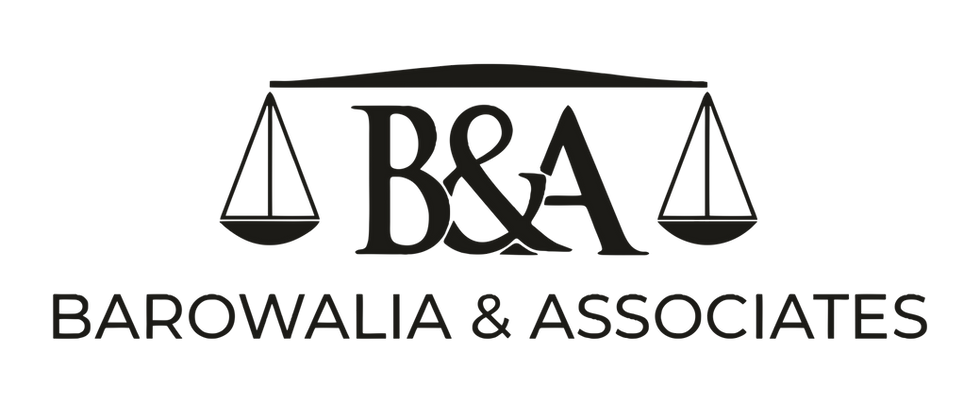The Legal Role of the Electricity Regulatory Commission in Tariff and Consumer Disputes
- Barowalia & Associates
- Jun 12
- 3 min read
Updated: Jun 21
Electricity is a vital utility that affects households, businesses, and industries alike. As a regulated sector, it requires a delicate balance between the interests of power producers, distributors, and consumers. This balance is maintained through the Electricity Regulatory Commissions (ERCs)—quasi-judicial authorities constituted under the Electricity Act, 2003.
In Himachal Pradesh, the Himachal Pradesh Electricity Regulatory Commission (HPERC) plays a crucial role in setting tariffs, adjudicating consumer grievances, and ensuring fair practices in the generation, transmission, and distribution of electricity.
⚖️ What Is the Electricity Regulatory Commission?
Electricity Regulatory Commissions are statutory, independent, and quasi-judicial bodies empowered to regulate the power sector in the public interest. Their functions include:
Determining tariffs for electricity
Regulating distribution licenses
Ensuring non-discriminatory open access to transmission lines
Promoting renewable energy
Adjudicating disputes between licensees and consumers
In Himachal Pradesh, HPERC operates under the Electricity Act, 2003 and its decisions are binding unless challenged before an appellate tribunal or court.
🧾 Legal Powers of the Commission
ERCs possess extensive statutory and adjudicatory powers:
Tariff Regulation: They fix electricity rates for consumers (residential, commercial, and industrial) after public consultation.
Licensing Authority: They grant and monitor licenses to distribution companies and private players.
Dispute Resolution: They resolve disputes between licensees, or between licensees and consumers.
Penalty and Enforcement: They can impose penalties for non-compliance or illegal power usage.
Consumer Protection: They issue standards for service, safety, billing, and reliability.
All proceedings before the Commission are treated as judicial proceedings under the Indian Penal Code and Code of Civil Procedure.
🔍 Types of Disputes Handled
Some common disputes and issues handled by ERCs include:
Unjust tariff hikes
Overbilling or incorrect meter readings
Load shedding beyond permissible limits
Delay in new connections or metering
Theft detection and penalties
Unilateral disconnection by the distributor
Non-compliance with renewable energy obligations
ERCs also deal with power purchase agreements, infrastructure development issues, and ensure that environmental norms are followed in generation projects.
📝 Complaint Procedure
To approach the Electricity Regulatory Commission:
Identify the Nature of Dispute
If the matter involves billing, disconnection, or delay in service—first approach the Consumer Grievance Redressal Forum (CGRF) of the electricity board.
Escalate to the Ombudsman or Commission
If unresolved by the CGRF, the matter can be escalated to the Electricity Ombudsman and then to the ERC, depending on jurisdiction.
Submit Written Petition
The petition must include:
Name and details of parties
Facts and nature of dispute
Legal issues and relief sought
Supporting documents (bills, letters, photos, meter reports)
Proceedings
Hearings are conducted where both parties may present their case
Orders are passed with enforceability
Interim relief may be granted in urgent cases
🔁 Appellate Remedies
Decisions of the State Electricity Regulatory Commission can be appealed before the Appellate Tribunal for Electricity (APTEL) in New Delhi.
Further appeal lies with the Supreme Court of India, but only on questions of law.
⚠️ Key Points for Consumers
Start with internal grievance redressal mechanisms (CGRF/Ombudsman)
Maintain all communication records—email, written complaints, bills
Beware of limitations—there are time limits for filing appeals
Technical expertise may be required in complex infrastructure or tariff matters
ERCs are not for casual complaints, but serious regulatory or legal issues that affect consumer rights or commercial viability.
👨⚖️ Why Choose Barowalia & Associates
With deep knowledge of regulatory law and public utility frameworks in Himachal Pradesh, we offer strategic legal assistance in electricity-related disputes. Our services include:
✅ Filing and contesting petitions before HPERC
✅ Representing consumers and licensees in tariff hearings
✅ Drafting appeals before APTEL and the Supreme Court
✅ Advising businesses and housing societies on compliance with power regulations
✅ Engaging with DISCOMs and officials to resolve service and billing disputes
We bring clarity and confidence to clients dealing with technical and high-stakes electricity matters—ensuring that rights are protected, and the law is followed.
Disclaimer: For information only; AI Assisted; no liability whatsoever.

Comments